7 Must Know Ways To Help a Corgi Lose Weight
Corgis are adorable, energetic dogs with a strong appetite that can sometimes lead to unwanted weight gain. Due to their short legs and long bodies, carrying extra pounds can cause health issues, making it important to help your Corgi maintain a healthy weight. In this article, we’ll explore some tips to help your Corgi shed those excess pounds in a safe and effective manner.
To begin with, it’s essential to monitor your Corgi’s diet closely. Providing appropriately portioned meals and limiting treats can make a significant difference in managing their weight. Furthermore, consider incorporating healthy foods like lean proteins, fruits, and vegetables that support their overall wellness.

Remember, a balanced diet is a vital component to maintaining a healthy weight for your Corgi.
Besides focusing on their diet, incorporating regular exercise is crucial for your Corgi’s weight loss journey. Daily walks offer a great opportunity to keep them moving, and stimulating activities like agility courses and fetch can help keep your pup engaged and active. By combining a nutritious diet with ample physical activity, your Corgi is on their way to shedding those extra pounds and enjoying a healthier, happier life.
Assessing Your Corgi’s Weight
Is your beloved Corgi packing on a few extra pounds? Don’t worry; you’re not alone in this struggle. Many Corgi parents face challenges in managing their pup’s weight.
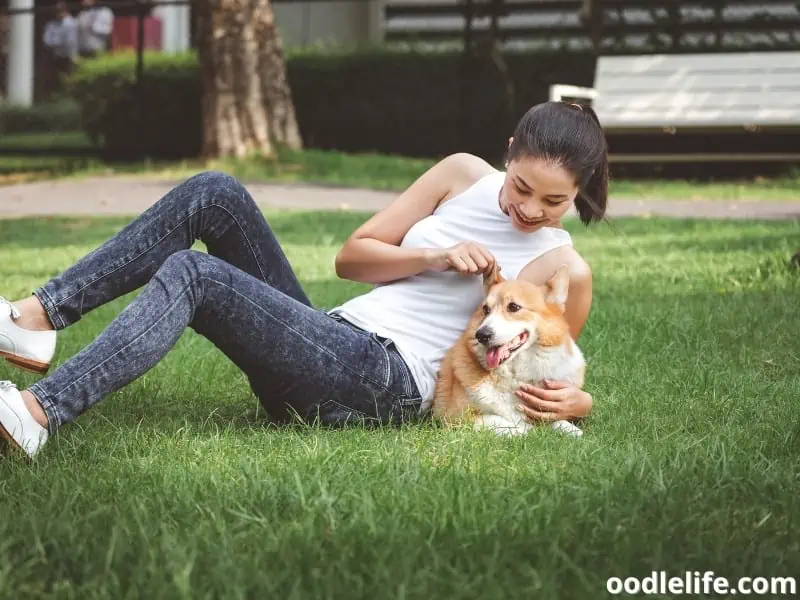
Let’s dive into how to assess your Corgi’s weight accurately.
First, it’s essential to understand the ideal weight range for a Corgi. Adult Pembroke Welsh Corgis typically weigh between 25 to 30 pounds, while Cardigan Welsh Corgis can range between 30 to 38 pounds. Keep in mind that individual Corgis may have different ideal weights depending on their size and overall proportions.
Here’s how you can assess your Corgi’s weight at home:
- Visual assessment: Observe your Corgi from the side and above. When looking from the side, a healthy Corgi should have a slightly tucked waist, and not a sagging one. From above, their waist should be narrower than the chest and hips.
- Hands-on check: Gently place your hands on your Corgi’s ribcage, with your thumbs on their spine and fingers on the sides. You should be able to feel your dog’s ribs without pressing too hard. If the ribs are difficult to feel beneath a thick layer of fat, your Corgi may be overweight.
Keep in mind that it’s always a good idea to consult with your veterinarian for a more accurate assessment. They’ll consider factors like muscle mass, bone structure, and overall health for a comprehensive evaluation.
Remember, Corgi weight management can be easier with a balanced diet, regular exercise, and portion control. A healthy weight will keep your Corgi energetic and lower the risk of obesity-related health issues. Keep an eye on that adorable fluff ball and get ready to see a leaner, healthier Corgi waddling around the house.
Establish a Balanced Diet
Helping your Corgi lose weight starts with establishing a balanced diet. A well-rounded diet ensures your Corgi receives the proper nutrients while still maintaining a calorie deficit, essential for losing weight.
Proper Food Selection
When choosing food for your Corgi, consider high-quality, low-calorie options. Look for foods with lean protein, such as chicken or fish, healthy fats like those from salmon or flaxseed, and complex carbohydrates like sweet potatoes or brown rice. This combination will keep your Corgi full and satisfied, all while contributing to weight loss.
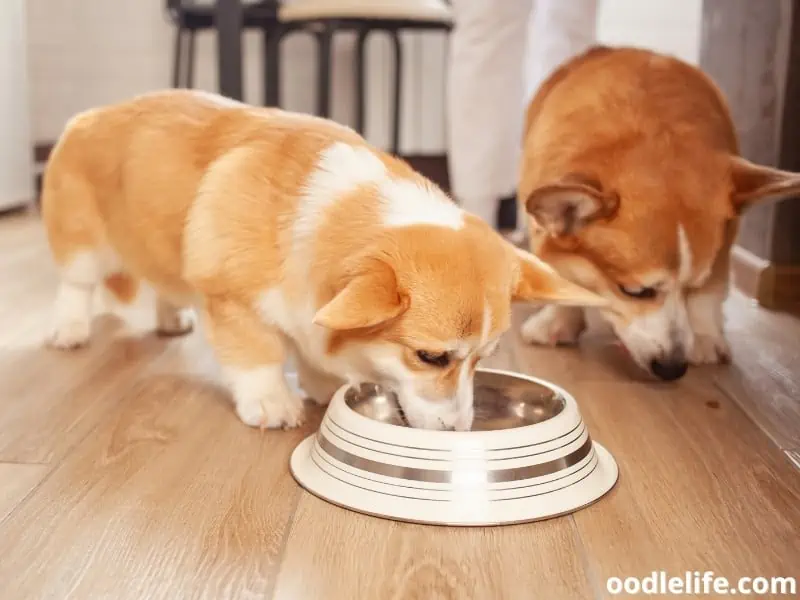
It’s also a good idea to include fiber-rich vegetables in their diet, as they add volume without adding many calories, promoting a feeling of fullness. Some examples include green beans, carrots, and pumpkin.
Portion Control
An essential aspect of a balanced diet is controlling portion sizes. Overfeeding is a common culprit for weight gain in dogs, especially small breeds like Corgis.
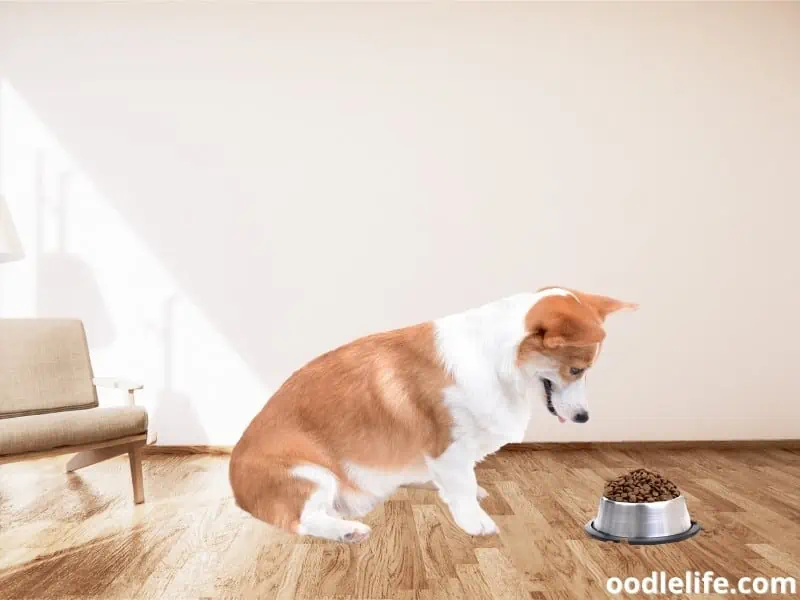
To manage portion sizes, you can:
- Measure out your Corgi’s food using a measuring cup to ensure you’re providing the right amount based on their weight and activity level. You can find guidelines on the dog food package.
- Divide their daily food allowance into smaller, more frequent meals. Instead of feeding them twice a day, consider feeding them three or four smaller meals. This helps to keep their metabolism active and prevents overeating.
- Avoid giving table scraps, as they can add unnecessary calories, disrupt their balanced diet, and make portion control more challenging.
With proper food selection and portion control, you can significantly improve your Corgi’s diet and help them shed those extra pounds! Remember to be patient and consistent, as weight loss is a journey, and your Corgi will thank you for the effort in the end.
Increasing Exercise
Regular Walks
One of the most effective ways to help your Corgi lose weight is to establish a consistent walking routine. Corgis are a naturally energetic breed, and they love to be outdoors. Aim for at least two 30-minute walks per day to ensure they’re getting enough physical activity.

Walking on varied terrains like grass, sand, or hilly areas can provide some extra challenges for their short legs. Remember to keep the pace brisk but comfortable, accommodating their shorter strides. Feel free to sprinkle in short bursts of jogging or playing fetch to mix things up.
Fun Activities for Corgis
Corgis are not only energetic but also intelligent, which makes them great at engaging with different activities.
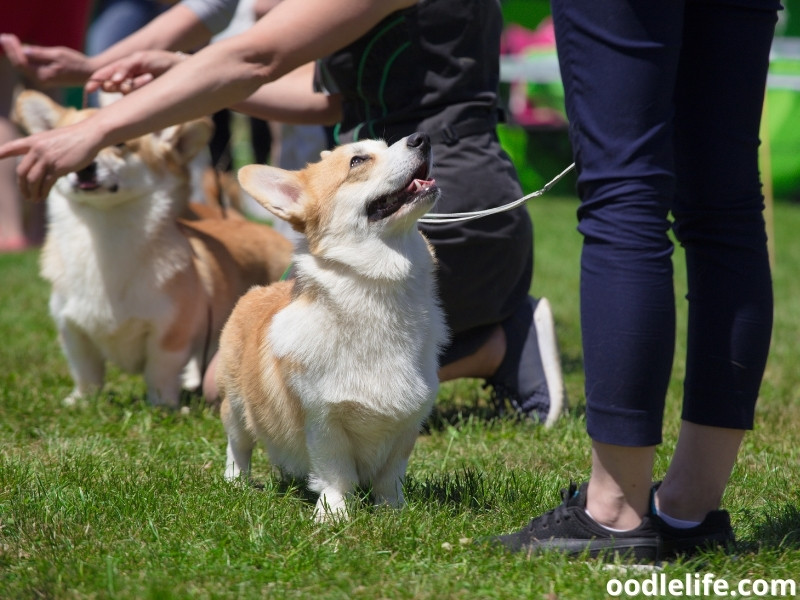
Here are some fun ideas to keep your Corgi entertained and moving:
- Agility training: Corgis excel at agility courses due to their herding background. Navigating through tunnels, weaving poles, and jumping over hurdles can provide a fun and rewarding experience.
- Herding exercises: Tapping into their natural instincts, consider enrolling your pet in a herding class or providing opportunities to “herd” toys or other objects at home.
- Swimming: Some Corgis enjoy swimming, which is a low-impact exercise that can help them lose weight without putting too much strain on their joints.
- Puzzles and games: Mental stimulation is essential for Corgis, so try incorporating puzzle games or hide-and-seek activities that encourage them to move, search, and think.
Incorporating these fun activities into your Corgi’s exercise routine will not only help them shed those extra pounds but also keep them mentally stimulated and happy. And a happy Corgi is a healthy Corgi!
Monitor Progress
Monitoring your Corgi’s progress is crucial for successful weight loss. By paying close attention to their development, you’ll be able to make adjustments that keep them on the right track. In this section, we’ll discuss consistent weigh-ins, adjusting diet and exercise, and how these factors contribute to your Corgi’s overall weight loss journey.
Consistent Weigh-ins
Incorporate regular weigh-ins to track your Corgi’s progress. Remember, weight loss is a marathon, not a sprint – and our little fur friends will appreciate a steady approach. Weigh them every two weeks.

Be consistent in choosing the time of day and be sure that they are on an empty stomach. This helps in getting an accurate reading of their weight.
Adjusting Diet
Evaluate your Corgi’s diet and make necessary modifications to help them lose weight.
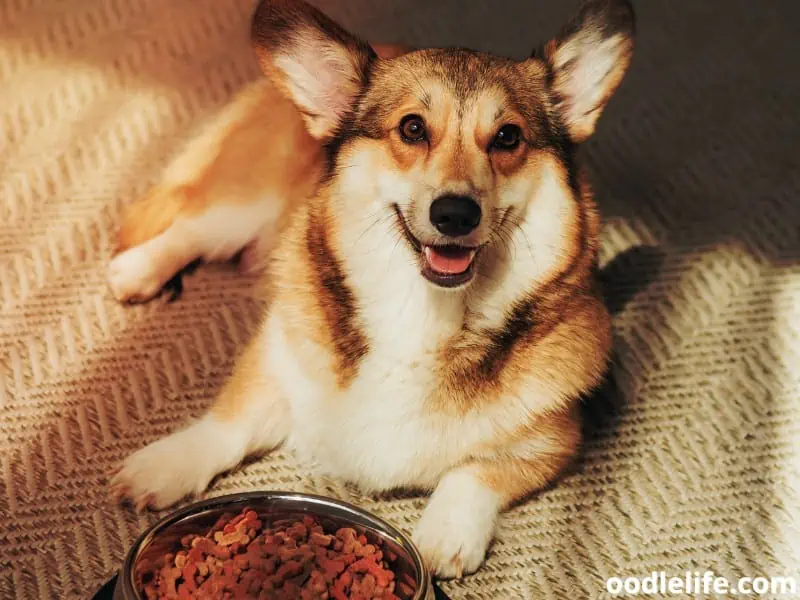
- Decrease calorie intake: Start by reducing their daily calorie consumption by 10%-20%. Consult your veterinarian for proper guidance on caloric intake.
- Choose healthier treats: Opt for low-calorie and nutrient-rich treats instead of high-calorie snacks. Remember, treats should make up no more than 10% of their diet.
- Control portion sizes: Overfeeding is a common culprit in pet obesity. Be mindful of portion sizes and follow feeding guidelines for their weight and age.
Adjusting Exercise
Regular exercise is essential for our little royal companions to get fit and avoid boredom.
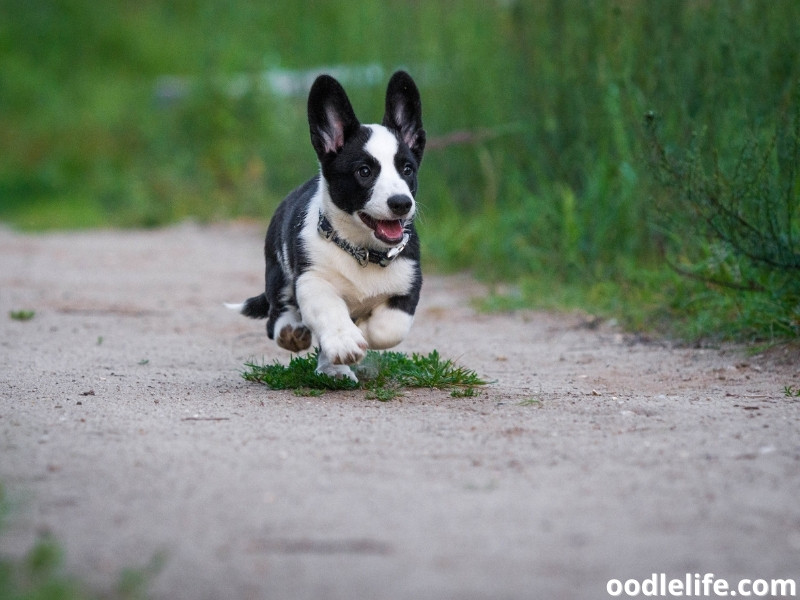
- Increase activity: Aim for at least 30 minutes of daily exercise, which can include walks, playtime, or swimming.
- Vary the exercise: Mix up the types of activities to keep your Corgi engaged and challenged.
- Monitor their response: Pay close attention to your Corgi’s fatigue level. As their fitness improves, gradually increase the intensity and duration of their workouts.
Remember, Rome wasn’t built in a day, and neither will your Corgi’s beach body. With patience, consistency, and a good dose of pupper-love, you’ll have a healthy and happy Corgi in no time!
Consulting a Professional
When helping your Corgi lose weight, it’s essential to consult professionals who can provide appropriate guidance. In this section, we’ll discuss two types of experts you may want to seek advice from: veterinarians and animal nutritionists.
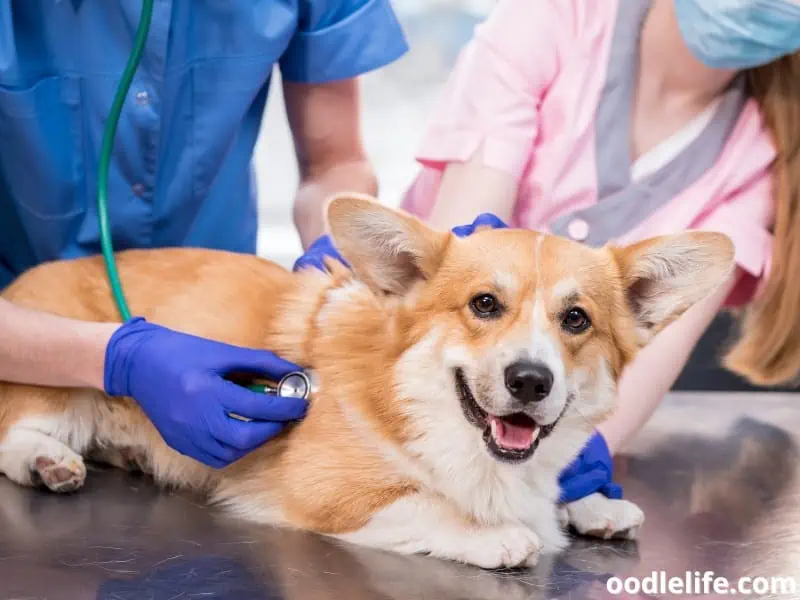
Veterinarian Advice
Your local veterinarian should be your first point of contact. They know your Corgi’s medical history and can give personalized recommendations on a healthy weight goal and how much weight your Corgi should lose.
During a consultation, a vet may:
- Assess your Corgi’s overall health, checking for any underlying issues contributing to weight gain
- Suggest a change in diet, recommending portion sizes, and discussing suitable types of food
- Advocate for regular monitoring of your Corgi’s weight and progress
Remember to keep your veterinarian in the loop throughout the weight loss journey, as they can help adjust any plans according to your Corgi’s needs.
Animal Nutritionist
For an in-depth analysis of your Corgi’s dietary requirements, consider consulting an animal nutritionist. They can provide detailed advice on specific nutrients and tailored meal plans for a healthy weight loss. Some areas they may focus on include:
- Caloric intake and adjustment for weight loss
- Nutrients essential for maintaining muscle mass, joint health, and energy
- Suggestions for supplements or special diets (if necessary)
Ultimately, the combination of a veterinarian’s guidance and an animal nutritionist’s expertise will provide a clear and comprehensive weight loss plan for your Corgi. Follow their recommendations and remember that consistency is key in making positive changes for your fluffy friend’s health.